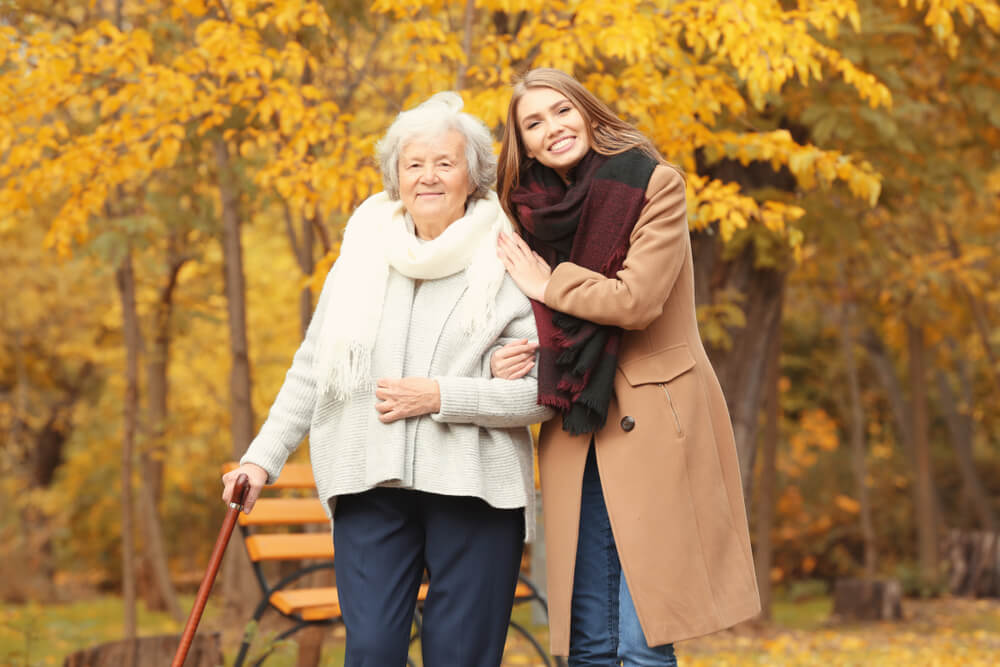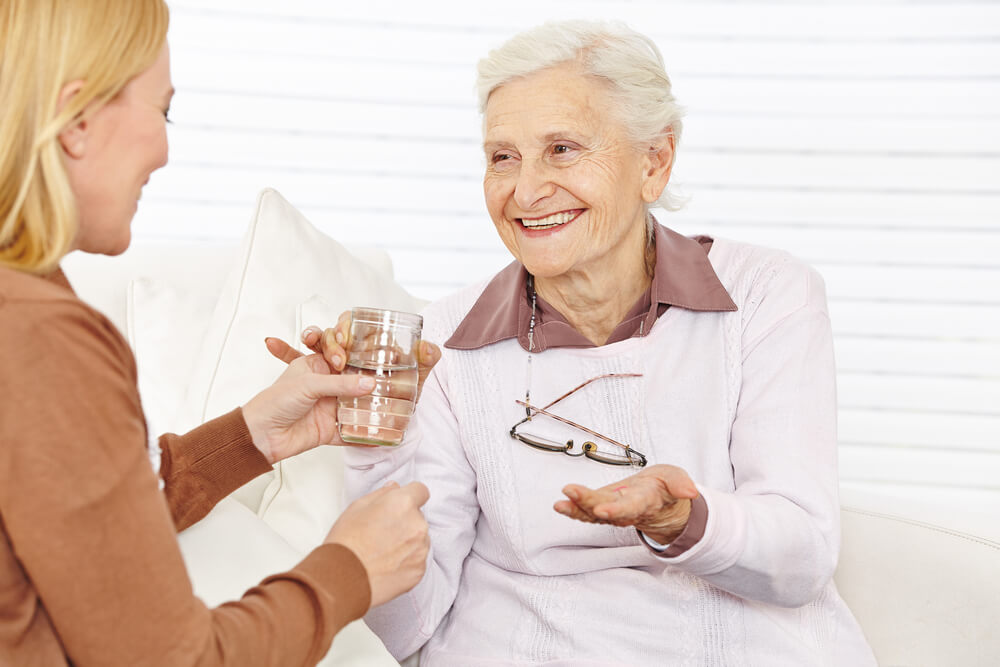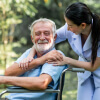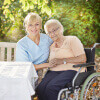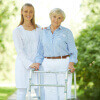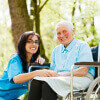Stay Safe and Healthy This Fall
As the leaves turn and temperatures drop, the fall season brings both beauty and unique challenges, especially for older adults. While it’s a season of transition, it can also pose significant risks for seniors, including slippery paths, cold weather, shorter days, and the increased prevalence of illnesses like the flu. Preventing seasonal health issues in seniors is crucial to ensure their safety and well-being. By understanding these challenges and taking proactive steps, you can help your loved ones navigate this season safely and comfortably. Here are the key areas to focus on this fall.
How to Prevent Slips and Falls from Wet Leaves
Slippery leaves are one of the most common causes of falls during autumn. Falls can lead to severe injuries in seniors, such as fractures or sprains, so it’s essential to minimize this risk.
1. Keep Pathways Clear
- Regularly rake and remove wet leaves from driveways, sidewalks, and steps.
- Encourage seniors to use non-slip mats near entrances for added grip.
2. Wear Proper Footwear
- Shoes with sturdy soles and good traction can help prevent slips.
- Avoid smooth-soled shoes that don’t provide adequate grip on damp surfaces.
3. Install Support Features
- Handrails along stairs and ramps provide additional stability.
- Outdoor lighting can improve visibility, especially as daylight hours shorten.
Managing Cooler Temperatures for Senior Comfort
Cold weather can exacerbate health conditions like arthritis or respiratory issues and increase the risk of hypothermia in seniors. Here’s how to stay warm and safe:
1. Dress in Layers
- Lightweight layers trap warmth and can be adjusted as needed.
- Opt for thermal undergarments, hats, scarves, and gloves when outdoors.
2. Keep the Home Warm
- Maintain indoor temperatures at a safe level (68–72°F).
- Use draft blockers for doors and windows to keep the chill out.
3. Stay Active Indoors
- Gentle indoor exercises like stretching or yoga can improve circulation and generate warmth.
- Activities such as walking in place or dancing can also keep seniors active on cold days.
Reducing the Risk of Illness During Flu Season
The flu and other respiratory illnesses like RSV or pneumonia are more prevalent in fall and winter. Seniors are especially vulnerable, so preventive measures are critical.
1. Get Vaccinated
- Annual flu vaccines and COVID-19 boosters are essential for seniors.
- Consider the pneumonia vaccine if recommended by a healthcare provider.
2. Practice Good Hygiene
- Wash hands frequently with soap and water for at least 20 seconds.
- Use hand sanitizers when soap is unavailable, especially after being in public spaces.
3. Maintain a Healthy Diet
- Incorporate nutrient-rich foods like fruits, vegetables, and lean proteins to boost immunity.
- Stay hydrated, as dehydration can weaken the immune system.
4. Minimize Exposure
- Avoid crowded places during peak flu season when possible.
- Encourage visitors who feel unwell to reschedule their visits.
Additional Tips for Senior Safety This Fall
Stay Hydrated
- Many seniors forget to drink water during cooler months because they don’t feel as thirsty. Encourage your loved ones to sip on warm herbal teas or soups to stay hydrated.
Be Prepared for Emergencies
- Ensure seniors have access to flashlights, blankets, and non-perishable foods in case of power outages.
- Keep a list of emergency contacts easily accessible.
Encourage Regular Check-Ins
- Frequent visits or calls from family members or caregivers can help ensure seniors are safe and supported.
- Professional home care services can provide additional peace of mind.
Creating a Fall Routine for Health and Safety
1. Plan Daily Walks
- Walking outdoors is great for physical and mental health but should be done when pathways are dry.
- Use walking aids if needed for added stability.
2. Engage in Seasonal Activities
- Enjoy fall crafts, baking, or puzzles to stay mentally active.
- Encourage social activities to reduce feelings of isolation as the weather turns colder.
3. Monitor Health Regularly
- Schedule routine checkups to monitor existing health conditions.
- Keep an eye out for symptoms of seasonal illnesses like coughing or fatigue.
Why Preventing Seasonal Health Issues in Seniors Matters
Taking proactive steps to prevent seasonal health issues in seniors not only keeps them safe but also enhances their quality of life. By addressing risks like slippery leaves, cold temperatures, and flu season, you can help seniors enjoy the beauty of fall without compromising their well-being.
For families and caregivers, vigilance and preparation are key. These small efforts can make a significant difference in ensuring a safe and happy season for seniors.
By implementing these tips, you can confidently navigate the challenges of the fall season and help your loved ones stay healthy and secure. Whether it’s through proper footwear, layered clothing, or staying up to date on vaccinations, preventing seasonal health issues in seniors is achievable with the right strategies.
Home Matters Can Help
Personalized home care for seniors at Home Matters is more than just a service; it is a commitment to ensuring each senior receives the highest level of care tailored specifically to their needs. This approach is transforming senior care, promising not only better health outcomes but also a more fulfilling and dignified quality of life for seniors.
Reach out to us at 844-666-8773 for a free consultation to share the challenges you’re facing, and to learn how our personalized home care services can help you.
Home Matters Caregiving proudly serves the North Atlanta area providing care for seniors wherever they call home.
